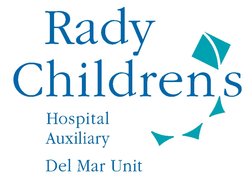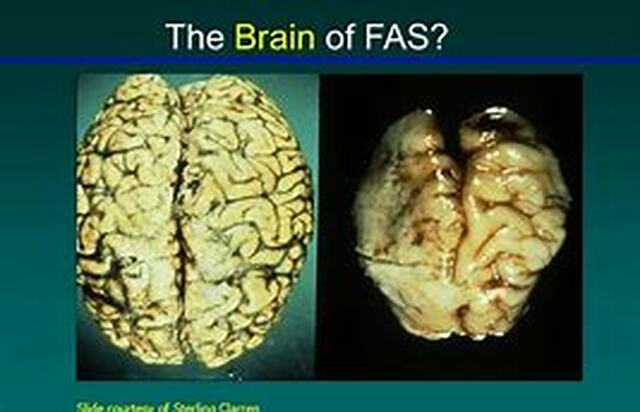What is Fetal Alcohol Syndrome?
This is a disorder also known as FAS and results from alcohol exposure prenatally. If a woman drinks during pregnancy, the baby is at a risk of FAS.
The defects which are a part of FAS are unable to be reversed and can consist of severe mental, physical as well as problems with behavior – but this can vary from child to child.
There are approximately 4000 babies born each year in the US with some sort of damage that is alcohol related.
If you believe your child has FAS, you should speak to your primary care physician as quickly as possible. A diagnosis which is early can lessen the threat of any problems connected with FAS, including problems at school, with breaking laws as well as with substance abuse.
Fetal Alcohol syndrome is not a single defect of birth. It is a group of problems which are related and the most serious of a cluster of problems of alcohol exposure prenatally. Together, the collection of disorders is known as fetal alcohol spectrum disorders also known as FASD.
FAS is a very common yet very avoidable cause of mental retardation. The seriousness of mental challenges can vary, with a number of children having them to a much larger level than others.
Fetal Alcohol Syndrome Symptoms and Signs
· Facial features which are very distinctive, including eyes which are small,
a upturned, short nose, an extremely thin upper lip as well a very
smooth surface skin between the upper lip and the nose.
· Defects of the heart.
· Joints, fingers as well as limbs which are deformed
· Physical growth which is slow both prior to and after birth
· Hearing and vision difficulties
· Small brain size as well as head circumference
· Coordination which is poor
· Problems with sleep
· Delayed development as well as mental retardation
· Disorder with learning
· Behavior which is abnormal, such as hyperactivity,
shortened attention span, poor control of impulses,
anxiety as well as extreme nervousness
This is a disorder also known as FAS and results from alcohol exposure prenatally. If a woman drinks during pregnancy, the baby is at a risk of FAS.
The defects which are a part of FAS are unable to be reversed and can consist of severe mental, physical as well as problems with behavior – but this can vary from child to child.
There are approximately 4000 babies born each year in the US with some sort of damage that is alcohol related.
If you believe your child has FAS, you should speak to your primary care physician as quickly as possible. A diagnosis which is early can lessen the threat of any problems connected with FAS, including problems at school, with breaking laws as well as with substance abuse.
Fetal Alcohol syndrome is not a single defect of birth. It is a group of problems which are related and the most serious of a cluster of problems of alcohol exposure prenatally. Together, the collection of disorders is known as fetal alcohol spectrum disorders also known as FASD.
FAS is a very common yet very avoidable cause of mental retardation. The seriousness of mental challenges can vary, with a number of children having them to a much larger level than others.
Fetal Alcohol Syndrome Symptoms and Signs
· Facial features which are very distinctive, including eyes which are small,
a upturned, short nose, an extremely thin upper lip as well a very
smooth surface skin between the upper lip and the nose.
· Defects of the heart.
· Joints, fingers as well as limbs which are deformed
· Physical growth which is slow both prior to and after birth
· Hearing and vision difficulties
· Small brain size as well as head circumference
· Coordination which is poor
· Problems with sleep
· Delayed development as well as mental retardation
· Disorder with learning
· Behavior which is abnormal, such as hyperactivity,
shortened attention span, poor control of impulses,
anxiety as well as extreme nervousness
Going the Extra MILE: A Math Tutoring Program for Alcohol Affected Kids
By
Claire D. Coles, Ph.D.
Director, Maternal Substance Abuse and
Child Development Project
Children with fetal alcohol syndrome (FAS) and other disorders on the fetal alcohol spectrum (FASD) have a number of learning issues, but the most common academic problem is with Math. Many studies in different parts of the country report that both children and adults have a weakness in this area (e.g., Howell, et al., 2006). It is likely that prenatal alcohol exposure affects some of the brain systems that support the development of early math skills. These systems include motor skills and processing of visual/spatial information. Difficulties with working memory and planning are also believed to be important.
The Fetal Alcohol and Drug Clinic at the Marcus Institute in Atlanta, with the support of the Centers for Disease Control and Prevention (CDC), has developed a model program suitable for children, ages 3 to 9 years old, who are at risk for math problems. The first 4-year phase of this project has just ended. During that phase, the Clinic developed a model for educating parents and teachers about FAS and for tutoring children. This involved creating teaching methods and manuals for caregivers, teachers and tutors focusing on FAS facts, Caregiver Advocacy, Behavior Management, and Mathematics. The investigators found that children who received the 6-week intervention showed significant improvement in math skills and in graphomotor (handwriting) skills in comparison to a randomly assigned group who did not. Parents who participated in the program were well satisfied with it and reported that their children’s behavior had improved significantly.
The second 4-year phase of the program, which is called MILE (Math Interactive Learning Experience), will make the materials and activities of the intervention more accessible to families and other professionals. While services will continue to be provided at the Marcus Institute, in this second phase, WEB-based learning materials are being developed to allow parents and teachers to learn skills over the internet that will help in promoting learning in alcohol-affected children. Tutors at remote sites will have access to learning material to guide their interactions with students. Materials will be available at www.do2learn.com, a website dedicated to the education of children with disabilities, including those with FASD.
You can learn more about this program or volunteer to be a participant or a tutor by calling Kristen Mitchener, Ph.D. at 404-419-4253.
For further information regarding this article please contact Dr. Claire Coles at the Maternal Substance Abuse and Child Development Project, Emory University School of Medicine, Department of Psychiatry and Behavioral Sciences, 1256 Briarcliff Road, N.E., Suite 324W, Atlanta, Georgia, 30306. You can also phone us at 404-712-9800 or visit our website at http://www.emory.edu/MSACD
By
Claire D. Coles, Ph.D.
Director, Maternal Substance Abuse and
Child Development Project
Children with fetal alcohol syndrome (FAS) and other disorders on the fetal alcohol spectrum (FASD) have a number of learning issues, but the most common academic problem is with Math. Many studies in different parts of the country report that both children and adults have a weakness in this area (e.g., Howell, et al., 2006). It is likely that prenatal alcohol exposure affects some of the brain systems that support the development of early math skills. These systems include motor skills and processing of visual/spatial information. Difficulties with working memory and planning are also believed to be important.
The Fetal Alcohol and Drug Clinic at the Marcus Institute in Atlanta, with the support of the Centers for Disease Control and Prevention (CDC), has developed a model program suitable for children, ages 3 to 9 years old, who are at risk for math problems. The first 4-year phase of this project has just ended. During that phase, the Clinic developed a model for educating parents and teachers about FAS and for tutoring children. This involved creating teaching methods and manuals for caregivers, teachers and tutors focusing on FAS facts, Caregiver Advocacy, Behavior Management, and Mathematics. The investigators found that children who received the 6-week intervention showed significant improvement in math skills and in graphomotor (handwriting) skills in comparison to a randomly assigned group who did not. Parents who participated in the program were well satisfied with it and reported that their children’s behavior had improved significantly.
The second 4-year phase of the program, which is called MILE (Math Interactive Learning Experience), will make the materials and activities of the intervention more accessible to families and other professionals. While services will continue to be provided at the Marcus Institute, in this second phase, WEB-based learning materials are being developed to allow parents and teachers to learn skills over the internet that will help in promoting learning in alcohol-affected children. Tutors at remote sites will have access to learning material to guide their interactions with students. Materials will be available at www.do2learn.com, a website dedicated to the education of children with disabilities, including those with FASD.
You can learn more about this program or volunteer to be a participant or a tutor by calling Kristen Mitchener, Ph.D. at 404-419-4253.
For further information regarding this article please contact Dr. Claire Coles at the Maternal Substance Abuse and Child Development Project, Emory University School of Medicine, Department of Psychiatry and Behavioral Sciences, 1256 Briarcliff Road, N.E., Suite 324W, Atlanta, Georgia, 30306. You can also phone us at 404-712-9800 or visit our website at http://www.emory.edu/MSACD

